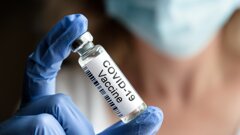PHILADELPHIA, US: A new advisory paper calls on dental professionals to recognise their pivotal role in identifying and supporting those who have suffered intimate partner violence. Given the frequency of dental visits and the visibility of head and neck injuries, the paper argues that dentists are uniquely positioned to detect signs of abuse and connect patients to critical support services.
Intimate partner violence has reached epidemic proportions in the US: one in three women and one in ten men report physical, sexual or psychological abuse by a partner. The impact of intimate partner violence extends beyond physical injury to include heightened risks of depression, suicide and pregnancy-related homicide. Despite these grave statistics, the dental industry has historically overlooked this issue in everyday practice.
The article highlights that many dental professionals feel under-prepared to manage intimate partner violence disclosures, citing barriers such as lack of training, uncertainty about legal reporting obligations and fear of offending patients. These professional challenges are compounded by the complex difficulties people who have suffered intimate partner violence often face in disclosing abuse, including feelings of shame, fear of retaliation or loss of financial security, immigration-related dependency and language barriers. Yet, because dental teams regularly examine areas where abuse-related injuries occur—the head, neck and mouth—they have a crucial opportunity to identify cases early.
The authors advocate mandatory intimate partner violence training for all members of the dental team to create trauma-informed, patient-centred practices. They propose the Ask, Validate, Document and Refer model as a simple, effective framework for intervention. Dentists are encouraged to ask sensitively about suspicious injuries, affirm the patient’s experiences without judgement, record findings accurately and provide discreet referrals to local or national support services.
The paper also outlines practical tools, including private patient safety awareness forms, discreet signage in restrooms, and trauma questionnaires for recording head and neck injuries. The authors also recommend collaboration with advocacy organisations and routine staff training—ideally refreshed every two years—to strengthen referral pathways and support patient safety.
Ultimately, the authors stress that awareness and preparedness can save lives. By integrating intimate partner violence screening and support into routine care, dental professionals can play a vital role in breaking cycles of abuse, protecting vulnerable patients and positioning dentistry as an essential part of the wider public health response to intimate partner violence.
The paper, titled “Intimate partner violence: The time is now to improve dental care providers’ awareness and implement widespread screening”, was published in the October 2025 issue of the Journal of the American Dental Association.
Topics:
Tags:
VICTORIA, British Columbia, Canada: Trauma is an emotional response caused by certain past events that have caused great distress in individuals. Since ...
SAN FRANCISCO, US: Physical intimate partner violence (IPV) can be especially detrimental during pregnancy and is a significant public health issue, having ...
COPENHAGEN, Denmark: A new interdisciplinary commentary by researchers in Denmark calls for dentistry to confront one of its most powerful but overlooked ...
MELBOURNE, Australia: Tooth loss can have a profound impact on social interactions and self-esteem. While poor oral health is known to be associated with ...
Live webinar
Thu. 5 February 2026
2:30 pm EST (New York)
Dr. Boota Ubhi BDS, FDS RCS (Edin), MDentSci, MRD RCS (Eng) Specialist, Cat Edney
Live webinar
Thu. 5 February 2026
8:00 pm EST (New York)
Dr. Zeeshan Sheikh Dip.Dh, BDS MSc, M.Perio, PhD, FRCDC, Dip-ABP
Live webinar
Tue. 10 February 2026
7:00 pm EST (New York)
Prof. Dr. Wael Att, Dr. Robert A. Levine DDS, FCPP, FISPPS, AOD, Dr. Larissa Bemquerer ITI Scholar at Harvard
Live webinar
Wed. 11 February 2026
11:00 am EST (New York)
Dr. med. dent. Sven Mühlemann
Live webinar
Wed. 11 February 2026
12:00 pm EST (New York)
Prof. Dr. Samir Abou Ayash
Live webinar
Fri. 13 February 2026
12:00 pm EST (New York)
Live webinar
Mon. 16 February 2026
12:00 pm EST (New York)



 Austria / Österreich
Austria / Österreich
 Bosnia and Herzegovina / Босна и Херцеговина
Bosnia and Herzegovina / Босна и Херцеговина
 Bulgaria / България
Bulgaria / България
 Croatia / Hrvatska
Croatia / Hrvatska
 Czech Republic & Slovakia / Česká republika & Slovensko
Czech Republic & Slovakia / Česká republika & Slovensko
 France / France
France / France
 Germany / Deutschland
Germany / Deutschland
 Greece / ΕΛΛΑΔΑ
Greece / ΕΛΛΑΔΑ
 Hungary / Hungary
Hungary / Hungary
 Italy / Italia
Italy / Italia
 Netherlands / Nederland
Netherlands / Nederland
 Nordic / Nordic
Nordic / Nordic
 Poland / Polska
Poland / Polska
 Portugal / Portugal
Portugal / Portugal
 Romania & Moldova / România & Moldova
Romania & Moldova / România & Moldova
 Slovenia / Slovenija
Slovenia / Slovenija
 Serbia & Montenegro / Србија и Црна Гора
Serbia & Montenegro / Србија и Црна Гора
 Spain / España
Spain / España
 Switzerland / Schweiz
Switzerland / Schweiz
 Turkey / Türkiye
Turkey / Türkiye
 UK & Ireland / UK & Ireland
UK & Ireland / UK & Ireland
 Brazil / Brasil
Brazil / Brasil
 Canada / Canada
Canada / Canada
 Latin America / Latinoamérica
Latin America / Latinoamérica
 USA / USA
USA / USA
 China / 中国
China / 中国
 India / भारत गणराज्य
India / भारत गणराज्य
 Pakistan / Pākistān
Pakistan / Pākistān
 Vietnam / Việt Nam
Vietnam / Việt Nam
 ASEAN / ASEAN
ASEAN / ASEAN
 Israel / מְדִינַת יִשְׂרָאֵל
Israel / מְדִינַת יִשְׂרָאֵל
 Algeria, Morocco & Tunisia / الجزائر والمغرب وتونس
Algeria, Morocco & Tunisia / الجزائر والمغرب وتونس
 Middle East / Middle East
Middle East / Middle East









































To post a reply please login or register